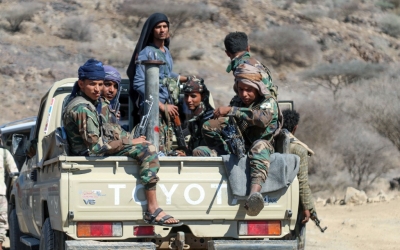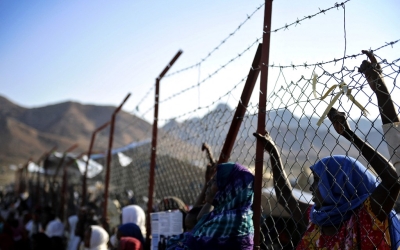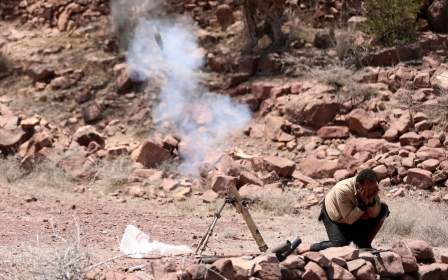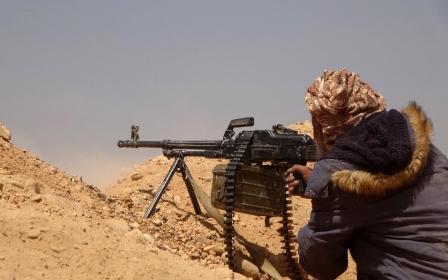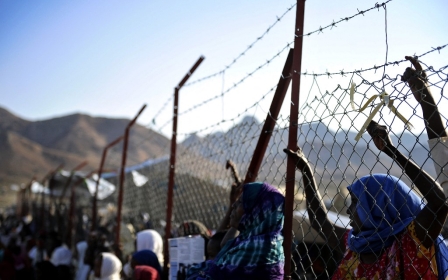UN Security Council condemns Houthi efforts to take Yemen's Marib

The UN Security Council has condemned the military escalation in Yemen's Marib and the Houthi movement's cross-border attacks against Saudi Arabia.
The council, in a statement sent to the media on Thursday, warned that Houthi attempts to take control of the government stronghold of Marib, the capital of an oil-rich region, "places one million internally-displaced persons at grave risk and threatens efforts to secure a political settlement".
New MEE newsletter: Jerusalem Dispatch
Sign up to get the latest insights and analysis on Israel-Palestine, alongside Turkey Unpacked and other MEE newsletters
It also highlighted the Iran-aligned Houthi movement's recent attacks on Saudi Arabia and expressed concern about military developments elsewhere in Yemen.
Stressing "the need for de-escalation by all", the Security Council noted that "the international community is increasingly united to end the conflict" in Yemen as soon as possible.
If left unresolved, a lack of progress in the peace process "could be exploited by terrorists in Yemen", the council said, adding a call for "accountability for human rights violations and abuses, and violations of international humanitarian law".
The UN has repeatedly called for a nationwide ceasefire and a political solution to the ongoing conflict, particularly during the recent months of escalation.
Saudi blockade of Yemen
Yemen's Houthi movement, also on Thursday, said that the Saudi-led coalition that has been waging war on behalf of Yemen's internationally-recognised government must lift its blockade on the country before a ceasefire agreement can be agreed upon.
When Riyadh entered the war in 2015, it introduced an air and naval blockade to prevent the Houthis from smuggling weapons into Yemen. The kingdom believes Iran has supplied the rebels with weapons to fight the coalition, which Tehran has denied.
At the same time, the UN and human rights groups have warned that the blockade has restricted the flow of aid and goods coming into Yemen, putting millions at risk of famine.
In Thursday's statement, the Security Council emphasised the importance of facilitating humanitarian assistance as well as the movement of fuel ships into Hodeidah port, a key gateway for humanitarian aid into Yemen.
The council said that all parties should "come together and work with the UN Special Envoy to negotiate, without preconditions, a nationwide ceasefire and a Yemeni-led and owned, inclusive, political settlement, which includes the full, equal, and meaningful participation of women, as well as the participation of youth, in accordance with past resolutions".
The council also reiterated support for Yemen's sovereignty, unity, independence, and territorial integrity.
Years of fighting in Yemen have led to more than 230,000 deaths, according to the UN. Most of the casualties have been civilians dying from hunger and disease, meanwhile, millions of Yemenis are being pushed to the brink of famine.
Middle East Eye delivers independent and unrivalled coverage and analysis of the Middle East, North Africa and beyond. To learn more about republishing this content and the associated fees, please fill out this form. More about MEE can be found here.


